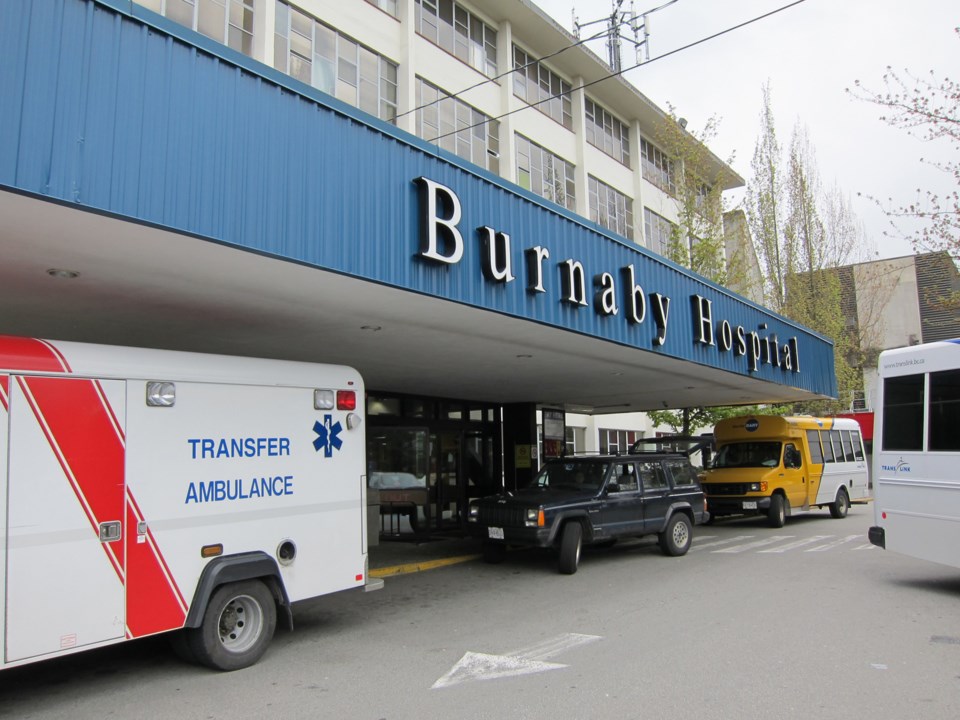While C. difficile cases still exist at Burnaby Hospital, there’s been no outbreak at the facility since last December.
It’s been more than a year since the Fraser Health Authority first rolled out its laundry-list of changes at Burnaby Hospital to tackle the highly infectious bacteria – and the results are starting to show.
Clostridium difficile causes diarrhea, nausea and dehydration, and it’s highly contagious. In December 2011, two units were closed for nine and 12 days each, according to several Fraser Health head doctors who wrote concerned letters that were made public at the time. The doctors said more than 470 patients had contracted C. difficile in a two-and-a-half year period from 2009 to mid-2011 – and 84 of those patients with C. difficile had died.
Last September, Burnaby Hospital reduced the number of patients in each room and upgraded its ventilation system, in an effort to curb the problem. By May 2012, 14 new cases of the infection were reported. Burnaby now has under four cases.
“Burnaby has not had an outbreak of C. difficile since Dec. 3, 2012,” Dr. Elizabeth Brodkin, executive medical director for infection control, told the Burnaby NOW. “We have been working very hard on C. difficile for almost two years now.”
Another big change was made with the number of Fraser Health staffers dedicated to infection protocols. There are now 30 practitioners across the health authority and 12 consultants.
In another effort to beat C. difficile, a vaccine trial in its third phase is being conducted at Royal Columbian Hospital. The study is part of a worldwide trial.
The hospital is still enrolling potential candidates, and there will be 15,000 people involved in the study worldwide, according to Alison Orth, research coordinator at Fraser Health. There are specific eligibility requirements involved, as well.
For more information, email [email protected] or call 604-587-7889.
Darcy questions upcoming review
New Westminster MLA Judy Darcy wants to know more about the upcoming review of the Fraser Health Authority.
Darcy, also the NDP health critic, said Health Minister Terry Lake needs to answer questions about what the review will include and who will be consulted.
“There have been a number of troubling incidents at Fraser Health hospitals over the last few months that shed light on the urgent issues of hospital overcrowding, emergency room wait times and inadequate staffing levels,” Darcy said in a media release. “Despite what the (health) minister says, these issues are more than hiccups – they are pervasive issues that require a clear and comprehensive action plan.”
The province ordered the strategic and operational review of the authority and appointed the head of the Fraser Health board to co-chair the review panel.
Darcy said she wants to know why details about the review haven’t been released, and if there will be public consultation.
In an interview with the Vancouver Sun, Fraser Health’s CEO Nigel Murray said the review will help the authority, as it’s been struggling to expand and make ends meet. He added that the review will provide ways to streamline services and ensure that every bed is used efficiently.
Nurses worried about ERs
The B.C. Nurses’ Union is still ringing the alarm over Fraser Health’s emergency rooms.
In a recent media release, the union has called on the health authority to take immediate action by eliminating understaffing and overcrowding in hospitals.
The union referenced an 86-year-old woman’s case where she had been to the emergency room 11 times over the last year. The union says the woman should be in a long-term care facility, but no one put her on a waiting list for one.
“There are thousands of other seniors just like Mrs. Otloff across B.C. emergency rooms and hospital wards overflowing with seniors who shouldn’t be there,” said union president Debra McPherson, in a media release. “They need to be in long-term care facilities or receiving adequate nursing support at home. Instead, they inevitably return to the ER again and again.”
It costs B.C. taxpayers $5,000 for each hospital visit, according to the media release. In one year, Otloff cost the system $350,000, which is significantly more than what nursing services at a home cost.



